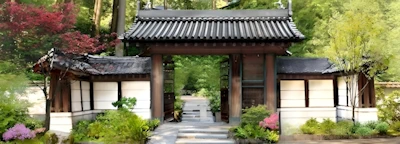Fugetsu-Do (Over 100 Years Old, Since 1903), Little Tokyo
Event Location
Los Angeles, CA 90012
Fugetsu-Do has been a family owned and operated confectionery store in Little Tokyo since 1903. Japanese rice cakes, more commonly known as mochi (rice cake) and manju (sweet bean-filled rice cake), are the staple. The shop, which is currently operated by Brian Kito, is located on East First Street, in the heart of the Historic District of Little Tokyo. Some of the family history was shared with me, and I welcome the opportunity to put down on paper one family's history in the United States.
Family Start in the US (1903 - 1920)
Brian's grandfather, Seiichi Kito, was born in Gifu, in Central Japan. Seiichi came to the United States in May, 1903 and went to where other Japanese immigrants were - in the East First Street district of Los Angeles The Japanese population numbered 3,000 and by November, Seiichi started producing sweets and opened Fugetsu-Do with a couple of friends. As his business partners passed away, Seiichi found himself managing Fugetsu-Do for the next 25 years.
Even on rainy and windy days, Seiichi would deliver his sweets. He carried manju and mochi around in a pouch, much like a backpack. He would also distribute early Rafu Shimpos, which were free in those days. Often, people who wanted to pick up a copy of the Rafu, which also began in 1903, would buy something from Fugetsu-Do, as well. So, the two family businesses were helping each other from the earliest days. As time went on, products from Fugetsu-Do were in demand up and down the coast of Southern California.
As Fugetsu-Do flourished, so did Little Tokyo. Fugetsu-Do's success was largely due to the hard work of the entire Kito family. Early account tells of Seiichi's wife, Tei, running the front counter while their six children helped out. Not only the Kitos, but Tei's brother, Sakuma, was very instrumental to the early success of the Fugetsu-Do, as well. This labor-intensive business kept members of both families quite busy.
Little Tokyo was the social, cultural, religious and economic center of the largest concentration of Japanese Americans in the US, and during the holidays, comfort foods were in high demand. Manju and mochi are traditional gifts in the Japanese custom, and during the few weeks before New Year's Day, the entire Kito family would work around the clock to fill the large number of orders.
Seiichi and Tei were to have six more children. But of the twelve children, five did not survive childhood, including the two eldest. Children not making it to adulthood was quite common in those days. And tragically, Tei passed away in 1920, a year after the birth of their son, Roy. Suddenly, Seiichi found himself to be a widower and a single parent of seven children. He was forced to make the difficult decision of having some of his children raised in Japan by in-laws and close family friends. Roy, the youngest child, was one of those to be raised in Japan.
Contact
Phone: (213) 625-8595Location Website
Click to Visit
(For Event Information See Event Website Page)
Authentic Japanese Gardens (United States)
Best Japanese Gardens
Japanese Rock 'Zen' Gardens (United States)
Best Japanese Rock 'Zen' Gardens
Japanese Teahouses (United States)
Best Japanese Teahouses
Japanese Museum Art
Japanese Museums Map of Japanese Museums

















